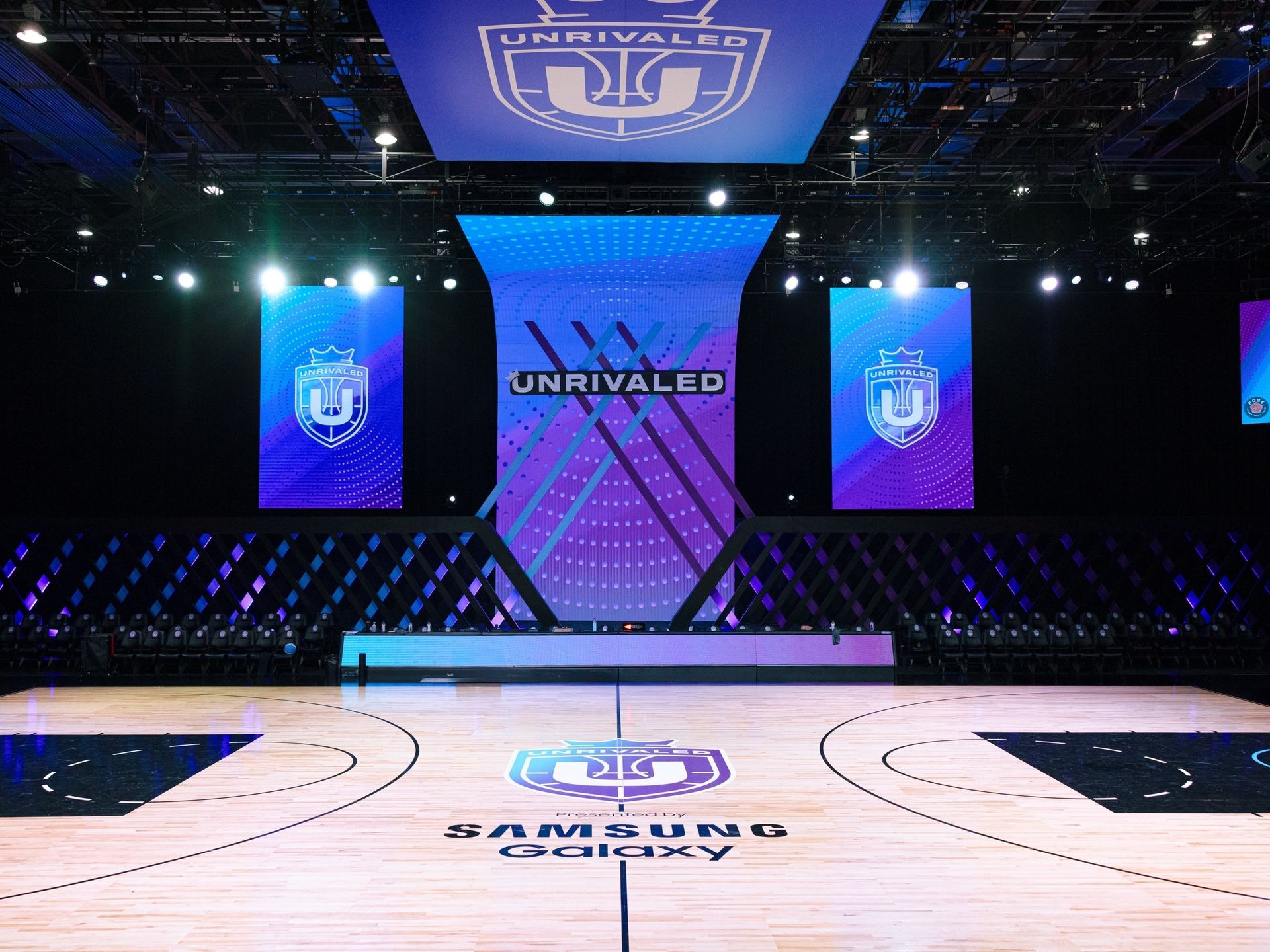On Jan. 17, WNBA stars Breanna Stewart and Napheesa Collier launched Unrivaled, a new 3v3 professional women’s basketball league.
Three-time Olympic gold medalist and three-time WNBA champion Stewart, alongside two-time gold medalist and WNBPA vice president Collier, founded the league to showcase women’s athletic talent and redefine professional basketball standards.
Unrivaled takes place during the WNBA offseason, featuring six teams and a total of 36 WNBA athletes. Unlike traditional basketball, this league follows a 3v3 format and is played on a court approximately 20 feet shorter than a standard basketball court.
Games consist of three seven-minute quarters, with a uniquely untimed fourth quarter. Instead of a game clock determining the winner, teams must reach a “winning score,” calculated by adding 11 points to the leading team’s total after three quarters. For instance, if Team X leads 60-55 after the third quarter, the first team to reach 71 points wins.
Foul rules also differ from the WNBA. When a player is fouled on a shot attempt, only one free throw is awarded, but its value matches the original shot attempt. A successful free throw following a three-point attempt counts for three points, while one after a two-point attempt is worth two points, and one-point opportunities remain valued at one point.
The shot clock is reduced to 18 seconds instead of the WNBA’s 24-second limit. In the final 30 seconds of a quarter, the clock stops on made baskets, a shift from the WNBA’s last-minute stoppage rule.
In addition to its unique rule changes, Unrivaled is setting a new standard for women’s sports salaries. Nearly all players in the league are earning over $100,000, making it the highest-paying women’s sports league ever, with a salary pool exceeding $8 million.
Backed by high-profile investors such as Alex Morgan, Michael Phelps and Coco Gauff, Unrivaled is fully funded and offers its athletes a state-of-the-art facility in Miami. The complex includes a dedicated practice court, a 3,000-square-foot weight room and top-tier training facilities. Players also have access to a childcare room, a content creation space and a glamour room. The facility also features a cafeteria with on-site nutritionists, personal trainers, massage therapists and personalized chefs.
Over the past year, the WNBA has seen a significant rise in popularity, from increased ticket sales to greater media attention. But is Unrivaled entering the scene too soon? Could it be pushing too hard, too fast?
Despite significant investment, Unrivaled has seen a steady decline in viewership over the past few weeks. If you asked most people, many wouldn’t even know the league exists. A major factor in this is the lack of media attention and advertising. While major outlets such as ESPN have covered the league, it has yet to gain widespread recognition.
One challenge is its limited broadcast availability, as games are only streamed on Max, truTV, and TNT. Additionally, the WNBA itself only recently surged in popularity and media attention, and it is hard to deny that the reason for that is largely because of rookie Caitlin Clark, who isn’t participating in Unrivaled.
Before 2024, the most-watched WNBA draft was in 2004, when Diana Taurasi entered the league, drawing 600,000 viewers. Clark’s official entry shattered that record with 2.45 million viewers, a 374% increase from the previous year.
Her influence was just as evident in live attendance. In 2023, the Indiana Fever averaged 4,067 fans per game, ranking second to last in the league. With Clark, they led the WNBA in 2024, averaging over 17,000 fans per game and becoming the first team to surpass 300,000 total attendees in a season. That marks a more than 300% increase from the previous year and an 857% jump from 2022, when they averaged just 1,776 fans per game.
While I believe Unrivaled is an exciting concept with the potential to showcase high-level competition and athleticism, I also think the primary focus should remain on the WNBA for now. With the league’s rapid growth coinciding so closely with the launch of Unrivaled, there’s a risk that one will lose momentum, and as the newer league, Unrivaled is more likely to struggle.
Despite concerns about its timing, Unrivaled is making its mark, airing primarily on Fridays, Saturdays and Mondays with two games per night. The league has also introduced a 1v1 tournament, adding another layer of excitement to its format.
Featuring a roster of elite WNBA talent, including Sabrina Ionescu, Brittney Griner, Aaliyah Edwards and other Olympic champions and WNBA All-Stars, Unrivaled is redefining the game. Players are not only earning salaries that reflect their talent but also gaining access to top-tier training facilities and resources, all while showcasing their skills in a fresh and dynamic setting.
While its launch may feel early, that doesn’t mean it should be overlooked. Fans of the NBA, WNBA and sports in general will find plenty to enjoy in Unrivaled, from its high-level competition to its innovative approach to the game, and I highly recommend everyone go take a look.



